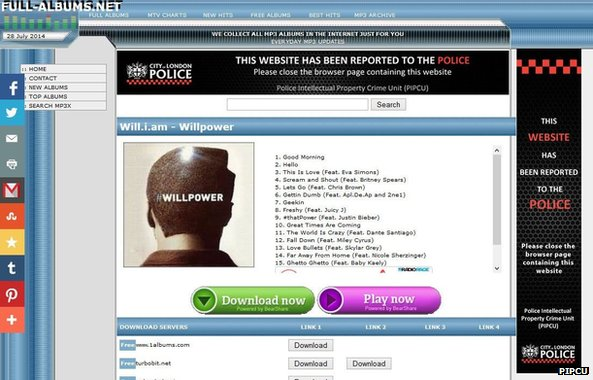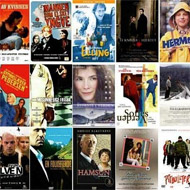Streaming Site Operator Accused of £120m ‘Piracy Fraud’
mercredi 26 août 2015 à 10:15 In May 2011, police in Northern Ireland reported seizing £83,000 and computer equipment following a raid in Londonderry. The operation was the culmination of an investigation carried out by the Hollywood-funded anti-piracy group Federation Against Copyright Theft (FACT).
In May 2011, police in Northern Ireland reported seizing £83,000 and computer equipment following a raid in Londonderry. The operation was the culmination of an investigation carried out by the Hollywood-funded anti-piracy group Federation Against Copyright Theft (FACT).
In February 2015, Paul Mahoney from Carnhill, Londonderry, was charged with offenses connected with operating now-defunct streaming links site FastPassTV and discussion and linking forum BedroomMedia. He pleaded not guilty to all charges and was bailed to appear at a later date.
In June, 30-year-old Mahoney changed direction, pleading guilty to all four charges against him including allowing the public to view copyrighted movies without rightsholder permission, conspiracy, and generating hundreds of thousands in illegal advertising revenue.
Mahoney was up in court again yesterday for a pre-sentence hearing and its becoming increasingly clear how much trouble he’s in.
After operating various sites for around six years, the prosecution claims that Mahoney made almost 410,000 euros ($471,500) from his endeavors, while simultaneously claiming state benefits worth around 12,000 euros ($13,800). When his house was raided, police found almost £82,400 ($129,000) in cash hidden away.

During the hearing in Derry’s crown court, prosecutor David Groome QC laid out the alleged scale of the 30-year-old’s offending while describing the financial implications as “staggering”.
Taking a single six-month period during which visitors to Mahoney’s sites viewed movies 1.1 million times illegally, Groome took the figures and ran with them, painting a somewhat scary picture for the court.
“During the six-year life of defendant’s business that equates to something like movies being viewed on 12 million occasions. If you consider it is about £10 to go to the cinema or about £10 to buy a brand new DVD upon its release, it means the defendant’s websites enabled users of it to view about £120 million [$188m] worth of property,” Groome said.
While acknowledging that not every view would represent a lost sale, the prosecution noted that Mahoney had taken a number of actions since 2007 to avoid having his sites closed down. Cease and desist notices issued by FACT appear to have been ignored and police arrested him twice, yet still he continued with his operations.
Defending Mahoney, Martin Rodgers QC said his client’s partial blindness meant that he was bullied at school, events that led to him becoming a virtual bedroom recluse for around 10 years.
“His constant and only companion during that period of time was in fact his computer. In one sense, he essentially lived in a bubble for a period of time,” Rodgers said.
Interestingly, the defense addressed the prosecution’s claims that Mahoney generated large revenues from advertising companies by questioning why they weren’t being prosecuted too.
“They entered into agreements that if anyone visited the site they would pay, even though from a cursory view of the site it would be apparent this was facilitating criminal offenses,” Rodgers said.
But despite the claims of massive profits, Mahoney’s lawyer rejected the notion that his client had enjoyed the high-life.
“There were no Rolex watches, no Ferraris outside and no evidence of an extravagant lifestyle. This enterprise took on a life of its own and became far more successful than this defendant ever envisaged,” he said.
While Mahoney faces a potential custodial sentence next month, FACT says that there will be no claim for compensation. Instead, they hope that the prosecution alone will send a clear message to others considering a similar path.
Source: TorrentFreak, for the latest info on copyright, file-sharing, torrent sites and ANONYMOUS VPN services.
 When Megaupload and Kim Dotcom were raided
When Megaupload and Kim Dotcom were raided  Over the past two years City of London Police’s
Over the past two years City of London Police’s 
 Less than 18 months since its original launch in 2014 and the controversial Popcorn Time software is still making headlines. The application’s colorful and easy to use interface has proven a hit with users and now anti-piracy groups in the United States and Europe are fighting back.
Less than 18 months since its original launch in 2014 and the controversial Popcorn Time software is still making headlines. The application’s colorful and easy to use interface has proven a hit with users and now anti-piracy groups in the United States and Europe are fighting back. Nearly four years have passed since Megaupload’s servers were raided by the U.S. Government, and still it remains uncertain if former users will ever be able to retrieve their files.
Nearly four years have passed since Megaupload’s servers were raided by the U.S. Government, and still it remains uncertain if former users will ever be able to retrieve their files.